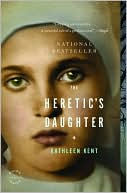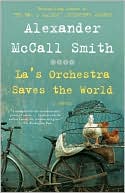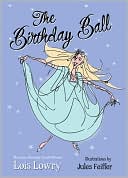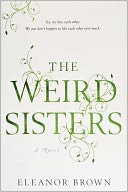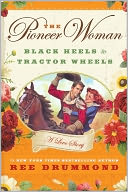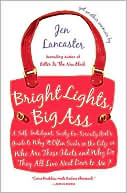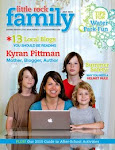Not a normal month for our book group.
Our original selection, Here on Earth by Alice Hoffman was abandoned mid-read. Although I am a fairly “liberal” reader, some of our members are significantly more cautious. So the content of this book was deemed inappropriate. This is the first time in 8 years that we’ve switched books in the middle of the month, which is a fairly good track record, if you ask me.
Also, we made a few changes to our unofficial “rules.” For the first time since we began meeting 8 years ago – we selected all of our books in January, to access our local library’s vast collection of “book club kits.” Although the ease of having 10 books for all our members readily at hand has been a huge time saver, it also has created some angst for members who don’t like being limited too what the library has to offer. It also has created a burden for me, because I’ve become the “ogre” who must make sure EVERYONE has returned the book to ME, so I may return them all together in the official book club bag. So, going forward, we will read some of the remaining club kits that our members selected – but have canceled others, and will revert to our “one member, one book” rule – whereby all our members have a chance to select a book, kit or not, and then be responsible for accessing them (either via library or purchase) and returning them. Whew…glad we were able to resolve it all…felt like I was chairing a PTA meeting last night and needed to ask for a motion!
Now to our 2nd selection for April – La’s Orchestra Saves the World by Alexander McCall Smith.
I read this book over a year ago and loved it. Sometimes when a book is read for the 2nd time, things don’t “feel” the same, or your opinion is swayed differently. I am pleased to say that I loved it just as much the second time as I did the first. It is a quaint, vintage, “feel-good” story. Here is my review from December ’09 – I didn’t feel any need to change any of it!
My enjoyment rating: 4 out of 5 stars
Book club rating: A-
Book source: Public Library
The cover of La’s Orchestra Saves the World absolutely enchanted me – the blue/green patina background, antique bicycle, and chicken cage – I was ready to jump on the bicycle seat and peddle off into the world of Alexander McCall Smith.
When I did, I ended up in the English countryside, with La Stone, her cottage and garden. La was probably similar to most countryside residents during WWII -- trying her best to help the war effort however best she could, whether it was planting a victory garden, helping her neighbors, or in her case, organizing an orchestra, a social activity that helped distract folks from the ongoing carnage of war and gave them some semblance of normalcy.
La’s (short for Lavender) “road” to country peasant started with the death of her philandering husband, and the sympathy of her now former in-laws, as they bequeathed their country home to her. She meets neighbors and local military men that sustain her during the war effort. One of these is Feliks, a polish refugee who has been assigned to work a neighboring farm. La develops a deep interest in Feliks as he helps a disabled farmer and volunteers to help her with her own garden.
This was a calm, bucolic, novel, in spite of the WWII setting. It was beautifully written, although, at times I thought it was an overly plain book –plain characters that on their own seemed insignificant and ordinary, but when “planted” together they were much like the potatoes they were cultivating – plain in appearance, but nutritionally necessary to the inhabitants and ultimately, to the reader.
As much as this was a novel of survival – it was also a morality tale. Many neighbors were suspicious of Feliks and his polish ancestry – was he indeed a Pole? Or was he a German spy? La finds herself in the middle of unfounded accusations, and the fallout from those actions, suspicions and assumptions prove complicated.
I thought her organizing an orchestra was the stabilizing force for so many during the war– and La was reminded of this when she wanted to “quit and go home.” People needed the memories the music evoked – those of peaceful times when you could enjoy a concert without threat of destruction.
The ending, however, took a rather awkward “turn” with nuclear disarmament, and La becoming an anti-war protester. I thought that was odd, but it did set up the final meeting of Feliks and La and a satisfying conclusion.
In the end, this was a beautiful story of survival, friendship, and hope. A perfect reminder of what we can do when we depend on and help each other.
From the Author:
I wrote La’s Orchestra Saves the World because I wanted to pay tribute to rather brave people. I wanted to say something about how ordinary people managed to get by during the Second World War. Most of them would not have regarded themselves as heroes and heroines, but they were. La (short for Lavender) was one of these. She worked on the land, helping a farmer with his chickens, and also started a little orchestra for British and American airmen. Music, she felt, helps. And it does--it inspires and heals.
The other group I wanted to pay tribute to was the Poles. Polish servicemen played a major role in the war. Their airmen, for example, participated in the Battle of Britain, that crucial battle that decided the fate of Europe. At the end of the war the Poles were betrayed and the contribution of their forces largely ignored. In the victory parade in London, the Poles were not allowed to march with everybody else (Stalin insisted on this). So those brave men stood at the side of the road and wept. This book is about them too.--Alexander McCall Smith
May Book Group selection: The Heretic's Daughter by Kathleen Kent 